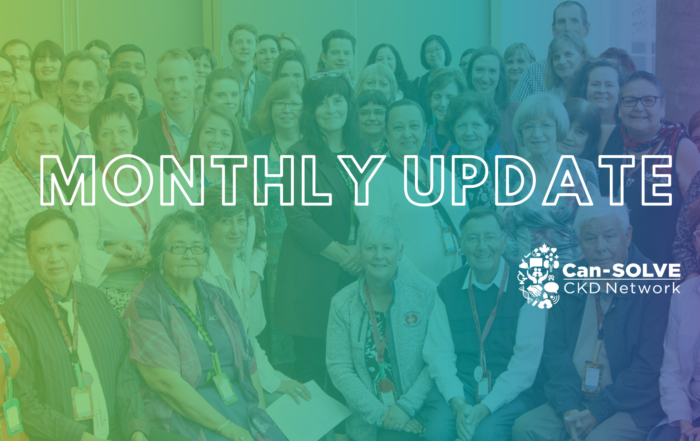
Medication can save lives – but it should be taken only when necessary.
One Can-SOLVE CKD research project, called STOP Med-HD, has created a new clinical tool that doctors can use to reduce the number of medications that are prescribed for dialysis patients, a population that has a particularly high pill burden.
“Dialysis patients have the highest pill burden of all chronically ill patient populations, at an average of 12 medications per day, and up to 70% of these medications may be inappropriate,” explains Dr. Marisa Battistella, a Pharmacy Clinician Scientist at the University of Toronto who is co-leading the study. “STOP Med-HD is intended to be a patient-centred solution to avoiding potential harms related to the use of inappropriate medications in patients on hemodialysis.”
The research group began by developing and validating an algorithm for identifying unnecessary medications taken by dialysis patients and ways to reduce these prescriptions over time (a process called deprescribing). The algorithm was developed by a collaboration of nephrologists from across Canada, and now the research team is exploring ways of implementing the tool in a nation-wide clinical trial.
Another critical component of this project involves educating patients on the importance and possibility of reducing their pill burden. This includes the creation of a video that explains the medication-specific risks, benefits, and process of deprescribing.
“By increasing patient knowledge, [patients] can more accurately self-monitor and report any symptoms related to the medication,” explains Battistella. “This enables patients to be more confident and productive when interacting with their healthcare providers, and be more informed when choices or decisions are presented by their circle of care.”
As with all Can-SOLVE CKD research projects, patients played a critical role in developing the materials, which has helped ensure that the content is easy to understand and convenient to use.
“The most rewarding aspect has been working with the patient partners. It is heartwarming and inspiring to see how dedicated they are to our project and moving the project forward,” says Battistella. “Our next phase is to simultaneously implement and evaluate our deprescribing toolkit (algorithms and patient information tools) in four Canadian hemodialysis units, as part of the clinical trial.”



Connect with us